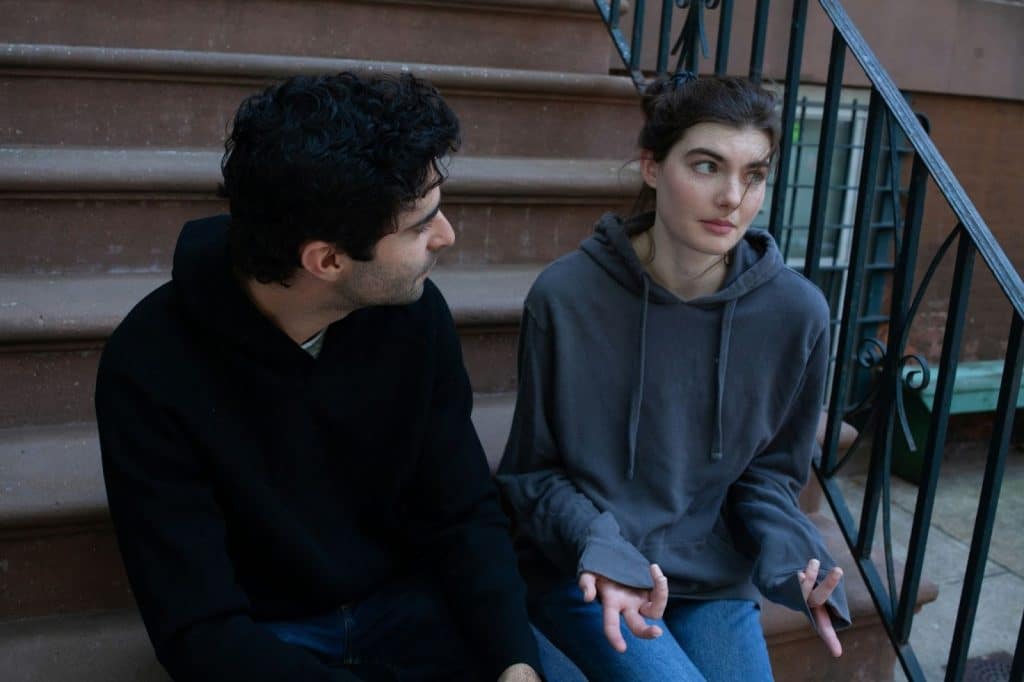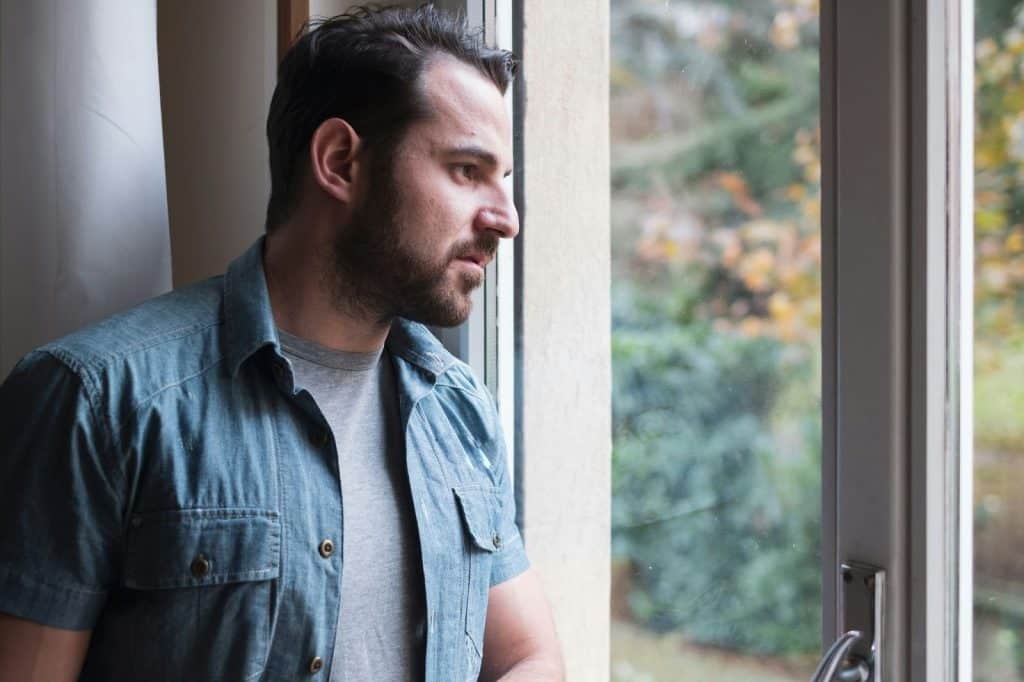
One-sided relationships don’t begin that way, they gradually shift as effort replaces equality. You start giving more, forgiving faster, and waiting longer, hoping things will balance if you just hold on a little tighter. But overextending doesn’t create connection; it only deepens dependence. Love isn’t meant to feel like endurance. It’s not a weakness to care deeply, but it becomes painful when you care alone. Real love is shared, not sustained by one person’s willpower.
You Mistake Effort for Connection

You believe that if you keep showing up, they’ll eventually recognize your worth. Effort feels like love because it’s all you know how to give. But when connection requires constant proving, it becomes performance, not partnership. Over-giving can’t fill the gaps left by emotional neglect. Real connection grows from mutual energy, not exhaustion. Love should flow both ways, not drain in one direction.
You Over-Apologize to Keep the Peace

You say sorry just to stop tension, even when you’re not wrong. Conflict feels dangerous because you fear it might push them away. Over time, apologies become survival tactics, your way of buying temporary calm. But every unnecessary apology chips away at your self-respect. Peace that costs your dignity isn’t peace; it’s submission. Healthy relationships survive disagreement, they don’t demand silence.
You Keep Explaining What They Never Try to Understand

You repeat yourself, hoping that clearer words will finally open their eyes. But communication can’t fix indifference. When someone chooses not to listen, explanation becomes begging. You can’t teach empathy to someone who’s invested in misunderstanding you. Real understanding doesn’t require convincing; it requires care. Stop trying to explain yourself to ears that have already decided not to hear.
You Take Responsibility for Their Emotions

You walk on eggshells, adjusting your tone and behavior to prevent their reactions. Their anger or withdrawal feels like your failure. But you’re not responsible for another adult’s emotions. Carrying their feelings while suppressing yours creates emotional imbalance that always ends in burnout. You can support someone, but you can’t save them from themselves. Love built on guilt will never feel secure.
You Normalize Unequal Effort

You tell yourself they’re “just not expressive” or “need time,” while ignoring how drained you feel. This justification turns one-sided effort into your emotional baseline. When you stop expecting equality, you settle for survival, not connection. Relationships thrive on reciprocity, not rationalization. The moment you stop normalizing imbalance, you stop participating in it.
You Stay Because of Potential, Not Reality

You see flashes of who they could be, kind, attentive, loving, and hold on to that image. But love built on potential is like chasing sunlight through fog. You deserve to be loved by someone who’s consistent, not someone who’s occasionally good at pretending. Hope can be noble, but it can also be a trap. If the best version of them only exists in your imagination, it’s not love, it’s longing.
You Minimize Your Needs to Avoid Conflict

You convince yourself your needs are “too much,” so you stop voicing them altogether. Silence feels easier than confrontation. But every unspoken need becomes quiet resentment. Love that punishes honesty can’t be trusted. You’re not demanding, you’re human. Being understood shouldn’t feel like asking for too much.
You Confuse Patience With Tolerance

Patience is waiting for growth; tolerance is enduring stagnation. You tell yourself things will improve if you just give them more time, but time doesn’t fix behavior, accountability does. The line between patience and self-neglect blurs when you confuse hope with progress. Waiting too long for change that never comes is how love turns into fatigue. Patience should feel peaceful, not painful.
You Reward Bare Minimum Effort

When they finally call, text, or show slight effort, it feels like progress. But celebrating crumbs keeps you starving for more. You shouldn’t have to feel grateful for the bare minimum. The standard for love isn’t scarcity; it’s sincerity. Stop mistaking inconsistency for change, real effort doesn’t need to be begged for.
You Chase Closure From Someone Who’s Emotionally Unavailable

You wait for apologies, explanations, or validation that never comes. But closure doesn’t come from others, it comes from choosing peace over answers. Some people stay silent because it benefits them. You don’t need their acknowledgement to heal. Closure isn’t something you’re given; it’s something you create when you decide you’re done seeking understanding from those who withhold it.
You Keep Fixing What They Keep Breaking

You believe love means mending every crack, no matter who caused it. But constantly repairing what another person keeps damaging only traps you in cycles of exhaustion. Real relationships require shared accountability. If they keep breaking what you build, it’s not miscommunication, it’s carelessness. Fixing everything alone doesn’t make you loyal; it makes you lonely.
You Avoid Setting Boundaries Out of Fear They’ll Leave

You shrink to fit their comfort zone, terrified that saying “no” will drive them away. But people who leave because of boundaries were never meant to stay. Boundaries don’t push love away; they protect it from erosion. Without them, respect slowly disappears. Saying “no” is not rejection, it’s self-preservation.
You’ve Made Their Happiness Your Responsibility

You measure your worth by how much joy you bring them. When they’re sad, you panic; when they’re cold, you blame yourself. But their happiness isn’t proof of your value, it’s a reflection of their own emotional work. You can love deeply without losing yourself in caretaking. Loving someone doesn’t mean carrying their healing for them.
You Romanticize Struggle as Loyalty

You wear your endurance like a badge, telling yourself that love means staying through pain. But struggle isn’t proof of strength when it becomes a pattern. Loyalty without reciprocity is self-sacrifice disguised as devotion. You’re not weak for wanting ease, you’re human. Love isn’t meant to constantly test your breaking point.
You Stay Out of Hope, Not Evidence

You remember the good moments and use them as justification for the bad ones. But one good memory can’t outweigh months of neglect. Hope becomes harmful when it blinds you to consistency. Love that needs constant justification isn’t love; it’s attachment. Evidence, not emotion, reveals the truth.
You Ignore the Discomfort That’s Trying to Wake You Up

The unease in your chest isn’t paranoia, it’s awareness. Your intuition speaks through discomfort long before your mind catches up. When you suppress that voice, you silence your own protection. Discomfort doesn’t mean something’s wrong with you; it means something’s wrong for you. Listening to that feeling is the first step toward freedom.
You Forget That Love Should Feel Mutual, Not Earned

Love that has to be earned through effort isn’t love, it’s emotional labor. Real connection feels reciprocal, not conditional. When you stop chasing, you start attracting those who naturally meet you halfway. Mutual effort feels peaceful, not performative. You don’t need to prove your worth to be loved; you just need to stop accepting less than it.
You Keep Choosing Comfort Over Growth

Familiar pain feels safer than unfamiliar peace. You stay because you know how to survive this version of love. But comfort that costs self-respect isn’t stability, it’s stagnation. Growth requires the courage to walk away from patterns that no longer serve you. You can’t heal in the same space that keeps wounding you.
You Confuse Leaving With Failure

Walking away feels like giving up, but it’s actually how healing begins. You’re not failing the relationship, you’re freeing yourself from imbalance. Letting go of someone who won’t meet you halfway is an act of strength, not surrender. You can’t force reciprocity, but you can reclaim your energy. Leaving isn’t quitting; it’s choosing peace over exhaustion.
When Awareness Becomes Freedom

Becoming aware of one-sided patterns isn’t bitterness, it’s awakening. You start to realize that love isn’t proven by endurance but by balance. The person who truly values you won’t let you carry the relationship alone. Awareness breaks the illusion that effort equals love. When you finally stop fighting for someone to meet you, you make room for someone who already will. That’s not loss, that’s liberation.






Ask Me Anything